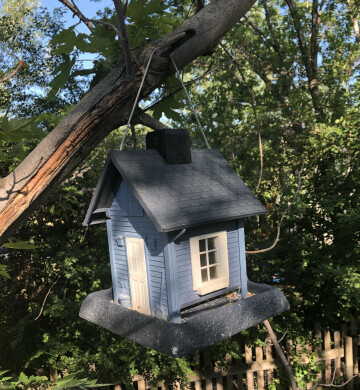Keep bird feeders clean or put them away for the summer
HELENA – To prevent the spread of disease, such as salmonella, bird enthusiasts should consider either removing their bird feeders for the summer or cleaning the feeder regularly. Montana Fish, Wildlife & Parks has received several phone calls recently about dead birds around feeders and birds with crusty eyes.
Birds don’t need supplementary food in the summer. They typically eat naturally occurring food, such as insects, during this time of year when they are nesting and rearing their young.
If you suspect that you are seeing sick birds, or find dead birds around your feeders, please contact your local FWP office. Bird feeders should be removed in the event illness is observed. The ground under feeders should also be cleaned as droppings will contain the salmonella bacteria.
Even when there is no sign of disease, feeders should be cleaned and disinfected at least every other week, or even weekly. Prevent overcrowding by spreading feeders out or using feeders that only allow a few birds to visit at one time.
Cleaning feeders
- Clean your feeders with warm, soapy water. Disinfect with a 10 percent bleach solution to kill bacteria. Rinse the feeder and allow it to dry completely before using it again. Disinfect your birdbaths as well.
- Clean your bird feeding area by washing all structures holding your feeders and raking the ground surrounding the feeders.
- If you have observed sick or dead birds, do not reinstall your feeders for a few weeks. As birds begin to migrate and cease traveling in flocks, it will be okay to put feeders back up.
If you find a dead bird, place it in a double plastic bag. Please keep the bird in a cool location (such as a cooler) until you’ve contacted FWP. FWP may want samples for testing. Wear gloves and wash hands thoroughly afterwards.
If you live in bear country, please consider placing feeders greater than 10 feet high, and more than 4 feet from nearby trees and bring them in at night or keep your feeders down for the active bear season. If bear activity is observed in the general vicinity of the feeder or your home, the feeder should be removed permanently.